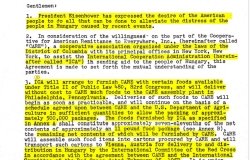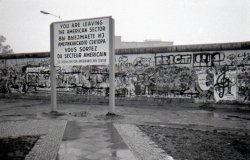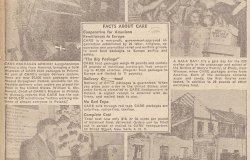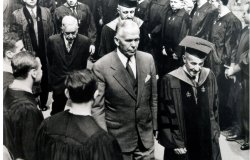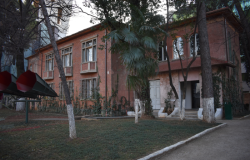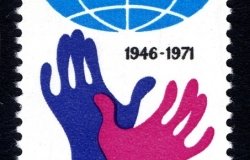Book Launch: <i>Under the Loving Care of the Fatherly Leader, North Korea and the Kim Dynasty</i>
Overview
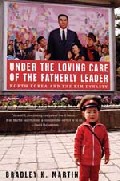 At a book launch seminar at the Wilson Center on February 9 veteran journalist Bradley Martin discussed the detailed portrait of North Korea presented in his new book, Under the Loving Care of the Fatherly Leader: North Korea and the Kim Dynasty. Based on his quarter century of covering North Korea, Martin argued that the United States should end its enmity with this repressive state and George W. Bush is the person to do it.
At a book launch seminar at the Wilson Center on February 9 veteran journalist Bradley Martin discussed the detailed portrait of North Korea presented in his new book, Under the Loving Care of the Fatherly Leader: North Korea and the Kim Dynasty. Based on his quarter century of covering North Korea, Martin argued that the United States should end its enmity with this repressive state and George W. Bush is the person to do it.
North Korea poses an acute problem for the United States because it is a likely source of nuclear weapons for Al Qaeda. However, neither war nor sanctions is a viable option for American policy. The Korean People's Army retains formidable war-making ability, despite the country's food shortages and crippled economy. Martin's numerous interviews with defectors in the 1990's revealed that North Koreans expect war and think it will solve their food-supply problems. Even though enthusiasm for war has probably dimmed in recent years, he noted that it would take little effort to fire the thousands of embedded artillery pieces aimed at Seoul, and thereby bring intolerable destruction to South Korea. Sanctions would only intensify the zenophobia of the North Korean people, who are deeply indoctrinated to blame outsiders for their country's problems. Although there is now a greater flow of information, there is no evidence that the population is ready to rise up and overthrow the Kim regime. Nor is there evidence that key generals are sidelining Kim Jong Il, as some recent reports have asserted. Besides, some of Kim's leading military officers are worse than he, so we should be careful what we hope for.
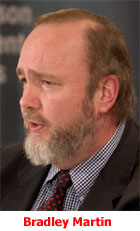 Making his case for maximum engagement, Martin asserted that Kim Jong Il differs from his father in that he does not believe the praise ritually offered him. He also understands that there are serious problems with the DPRK's system and has consequently begun to encourage market forces. Martin agrees that Kim is unlikely to give up his weapons of mass destruction unless he can be persuaded that the United States has truly changed from being an enemy to being a friend. He noted a small bright side in the human rights picture—the easing of certain policies, such as collective family responsibility, in response the pressure from European countries that recently established diplomatic relations with Pyongyang. Kim Jong Il is not entirely without conscience, Martin concluded, and a human rights deal might accompany an arms deal. In Martin's estimation, the fundamental interests of North Korea are reconcilable with those of the United States, and the current president, like Richard Nixon before him, who opened the door to engagement with Communist China, is the right man for the job.
Making his case for maximum engagement, Martin asserted that Kim Jong Il differs from his father in that he does not believe the praise ritually offered him. He also understands that there are serious problems with the DPRK's system and has consequently begun to encourage market forces. Martin agrees that Kim is unlikely to give up his weapons of mass destruction unless he can be persuaded that the United States has truly changed from being an enemy to being a friend. He noted a small bright side in the human rights picture—the easing of certain policies, such as collective family responsibility, in response the pressure from European countries that recently established diplomatic relations with Pyongyang. Kim Jong Il is not entirely without conscience, Martin concluded, and a human rights deal might accompany an arms deal. In Martin's estimation, the fundamental interests of North Korea are reconcilable with those of the United States, and the current president, like Richard Nixon before him, who opened the door to engagement with Communist China, is the right man for the job.
Hosted By

Cold War International History Project
The Cold War International History Project supports the full and prompt release of historical materials by governments on all sides of the Cold War. Through an award winning Digital Archive, the Project allows scholars, journalists, students, and the interested public to reassess the Cold War and its many contemporary legacies. It is part of the Wilson Center's History and Public Policy Program. Read more

North Korea International Documentation Project
The North Korea International Documentation Project serves as an informational clearinghouse on North Korea for the scholarly and policymaking communities, disseminating documents on the DPRK from its former communist allies that provide valuable insight into the actions and nature of the North Korean state. It is part of the Wilson Center's History and Public Policy Program. Read more
Thank you for your interest in this event. Please send any feedback or questions to our Events staff.
